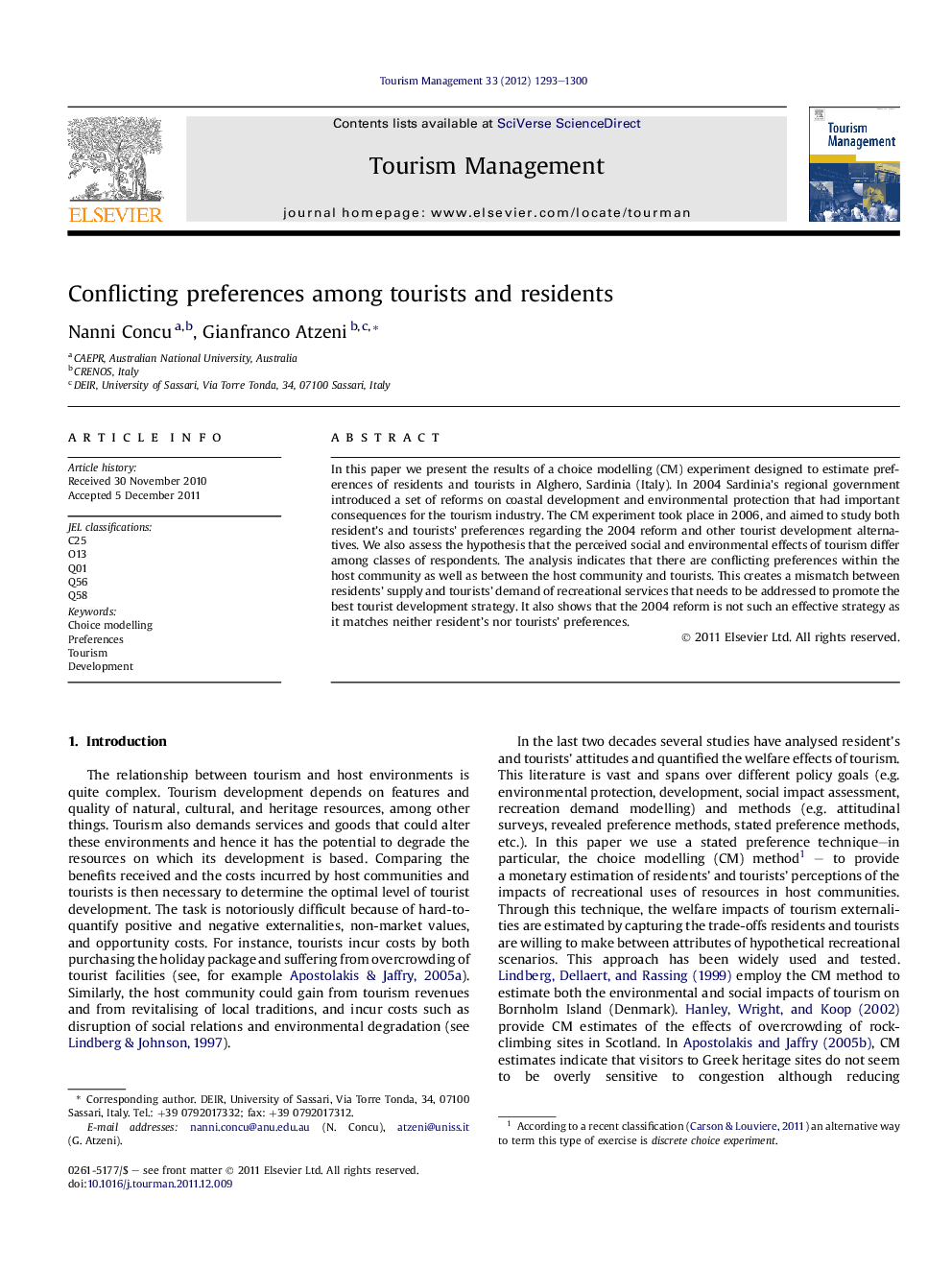| Article ID | Journal | Published Year | Pages | File Type |
|---|---|---|---|---|
| 1012536 | Tourism Management | 2012 | 8 Pages |
In this paper we present the results of a choice modelling (CM) experiment designed to estimate preferences of residents and tourists in Alghero, Sardinia (Italy). In 2004 Sardinia’s regional government introduced a set of reforms on coastal development and environmental protection that had important consequences for the tourism industry. The CM experiment took place in 2006, and aimed to study both resident’s and tourists’ preferences regarding the 2004 reform and other tourist development alternatives. We also assess the hypothesis that the perceived social and environmental effects of tourism differ among classes of respondents. The analysis indicates that there are conflicting preferences within the host community as well as between the host community and tourists. This creates a mismatch between residents’ supply and tourists’ demand of recreational services that needs to be addressed to promote the best tourist development strategy. It also shows that the 2004 reform is not such an effective strategy as it matches neither resident’s nor tourists’ preferences.
► Evaluation of residents’ and tourists’ welfare changes using the choice modelling. ► Overall effect of a real policy reform on coastal management in Alghero (Sardinia). ► Identification of the development trajectories that minimise conflicting demands. ► Environmental protection increases the welfare of residents not involved in tourism. ► Less congestion and more jobs increase benefit all residents. Tourists not affected.
